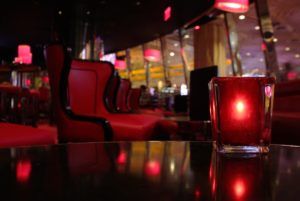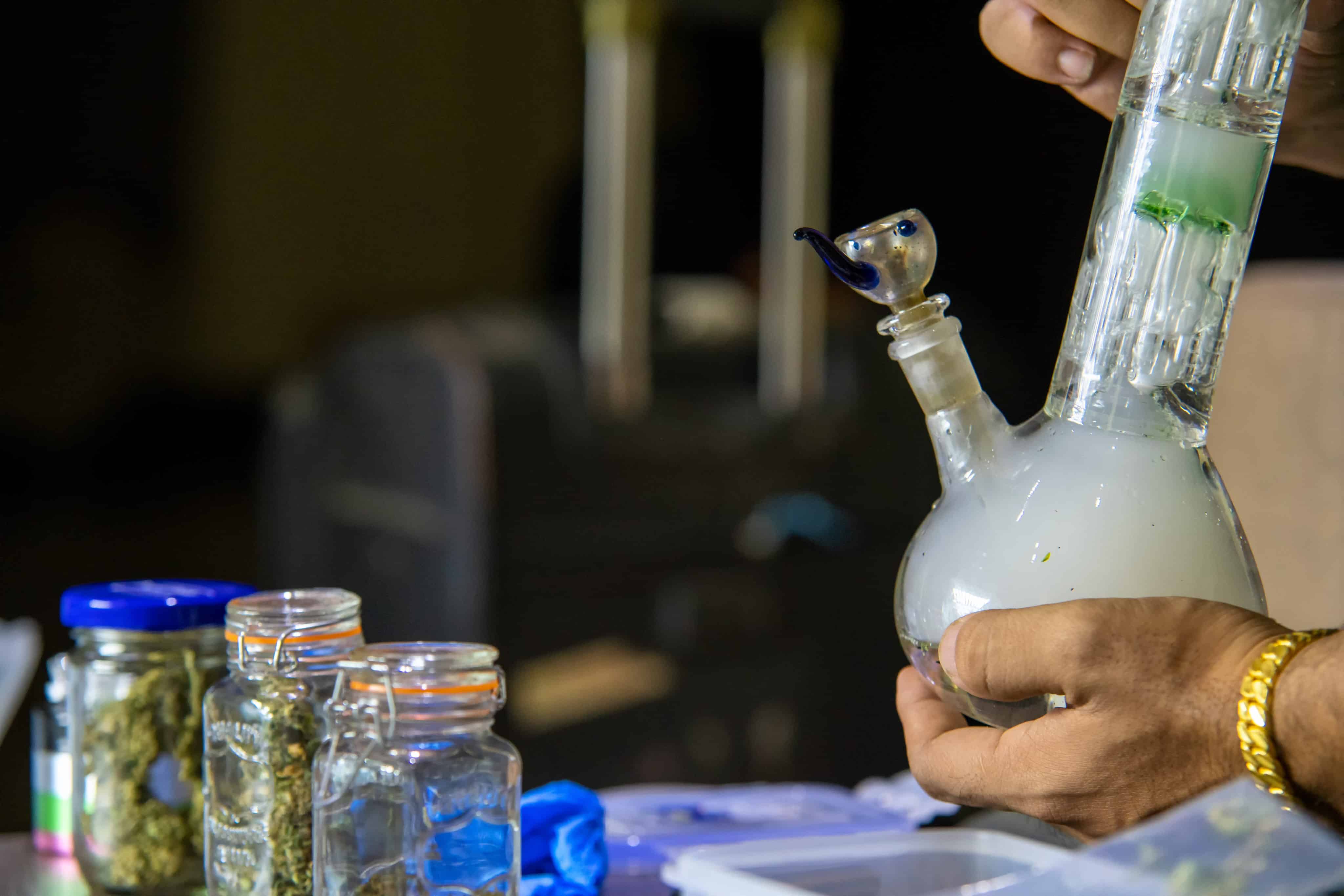Nevada marijuana firms ready consumption lounges to serve tourist throngs
Published 8 hours ago | By
Margaret Jackson
Nevada marijuana companies are mapping out plans to open consumption lounges next year under a new state law with the goal of serving the tens of millions of visitors who flock to Las Vegas annually.
Until now, tourists buying cannabis products in Sin City’s retail stores have had no place to smoke, eat or consume their purchases because it’s illegal to do so in public.
Moreover, consumption is not allowed in Las Vegas casinos or the city’s approximately 150,000 hotel rooms.
That has put a damper on sales to out-of-state visitors in this tourist-reliant city. In 2019, Las Vegas attracted more than 42 million visitors.
“When recreational cannabis was legalized here, it was legalized without a place for tourists to consume it,” said Layke Martin, executive director of the Nevada Dispensary Association.
“You weren’t legally allowed to consume it in public. Lounges create a space where cannabis products can be consumed legally.”
Hadhinah Felice, marketing director at Amargosa Valley-based cultivator MJ Holdings, predicts that “cannabis sales are going to skyrocket” thanks to consumption lounges. The company plans to open such a venue.
“Not only locals but visitors will crowd the lounges,” Felice predicted.
New law enacted
Nevada is one of nine states that permit on-site consumption of recreational marijuana, according to the Washington DC-based Marijuana Policy Project, although the pandemic
has complicated plans for some business owners aiming to offer such venues.
A bill allowing for
marijuana consumption lounges was among a flurry of last-minute measures approved by Nevada lawmakers in June, before they adjourned for the year. Gov. Steve Sisolak signed the measure into law.
The state’s Cannabis Compliance Board (CCB) must finalize the rules governing the lounges.
Under the new law, regulators can offer two new types of marijuana business licenses related to consumption lounges:
- One for retailers that want to open consumption lounges on the same property as their retail shops.
- One for stand-alone lounges that will be limited to single-use products, in the same manner as bars that sell alcohol.
Alcohol sales will be barred in either type of establishment.
Nevada has 86 cannabis retailers held by about 45 different ownership groups, Martin said. Each ownership group will be permitted to have one consumption lounge license if they have space that qualifies for one.
Nearly 60 retailers have indicated they’re interested in opening consumption lounges.
The CCB will provide store owners who held licenses as of July 1 written notification that they might be eligible for a permit for a retail cannabis consumption lounge.
Different licenses will be issued for lounges attached to marijuana retail outlets and stand-alone lounges that offer single-use products that can be consumed on the premises.
While the CCB has not yet finalized the rules for consumption lounges, state law has established certain parameters:
- Only the owner of a licensed adult-use store is eligible for a retail cannabis consumption lounge license – one person cannot hold both retail and independent cannabis consumption lounge licenses.
- At least half the licenses – 10 of the first 20 – issued to independent cannabis consumption lounges must be awarded to social equity applicants. A social equity applicant is someone who has been adversely affected by laws that criminalized cannabis-related activity.
- The one-time, nonrefundable application fee for a retail cannabis consumption lounge is $100,000 while the fee for an independent lounge is $10,000.
The CBC expects to issue the first round of licenses by early to mid-2022.
Years in the making
The Nevada marijuana industry has been
seeking cannabis consumption lounges for years, given the state’s heavy reliance on tourism.
In Las Vegas, Planet 13 Holdings had already designated space for a consumption lounge at its superstore but then had to pivot.
The customer lines to buy product there were so long that Planet 13 opted to use the space designated for its consumption lounge to double the size of the sales floor to cut the wait time from 1½ hours to about 45 minutes.
Now the company is looking at a 4½-acre site with a 55,000-square-foot building adjacent to the store to build a consumption lounge, said Larry Scheffler, Planet 13’s co-CEO.
“That will give us 19 acres and a 176,000-square-foot marijuana superstore complex,” he said.
Planet 13 will use about 20,000 square feet of the building, which is owned by the superstore’s current landlord, for its consumption lounge and club, which will include a 4-inch-deep indoor splash pool that opens onto a 5,000-square-foot outdoor balcony. A skywalk will connect the consumption lounge to the dispensary.
“We’re very bullish on it,” Scheffler said. “This is what Vegas is about – entertainment. We’ve been very successful so far, and as long as we continue to create a destination, we’ll continue to be successful.”
Marijuana products sold at the Planet 13 consumption lounge will be more expensive than those sold at the superstore, and guests will not be able to bring in cannabis from other retailers, Scheffler said.
“If you’re at a club at the Wynn, you can’t bring in a bottle,” Scheffler said. “If you buy a bottle of wine for $50 at a store, it might cost $200 in the club.”
Like Planet 13, the Oasis Cannabis Dispensary in Las Vegas is looking at taking over a suite that’s adjacent to its retail shop to build out a consumption lounge, said Lissa Lawatsch, the store’s general manager.
She anticipates customers will purchase cannabis in the store and then take it into the adjacent consumption lounge.
“It depends on how the regulations are written,” she said. “We’re attached by a wall that connects the dispensary to the consumption lounge. If they allow us to connect the two, we do more with purchasing and delivering it to the table.
“But it sounds like it’s going to have to be two separate entities.”
Independent lounge planned
Roger Bloss, CEO of MJ Holdings, plans to apply for an independent consumption lounge license because the company does not currently operate any retail stores.
MJ Holdings would package and sell its own products in the consumption lounge. The company also is looking at acquiring a retail store.
“To complete our vertical, we need a retail opportunity and a consumption lounge,” Bloss said. “I’m a big proponent of consumption lounges and finding a way for Nevada’s worldwide global tourist trade to consume cannabis.
“I just don’t like that we put people in uncomfortable positions.”
Bloss noted that, back in the day, Las Vegas didn’t have nightclubs on the Strip, but tourists wanted them, so hotels and casinos built them.
“Once the hotels and casinos realized people were taking their money to other destinations, they started putting nightclubs in the hotels,” Bloss said.
“Vegas will create the ultimate destination for these lounges.”

